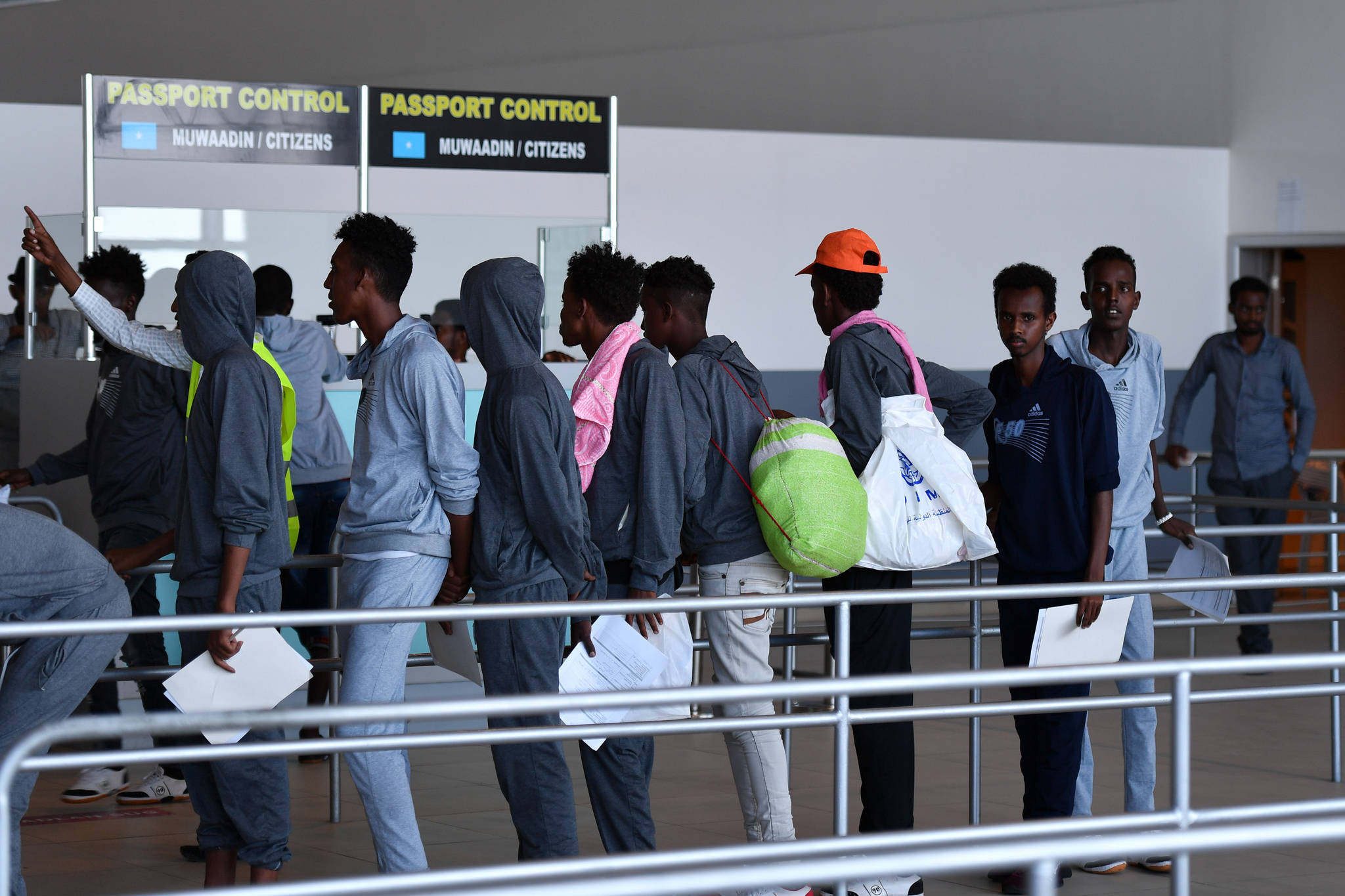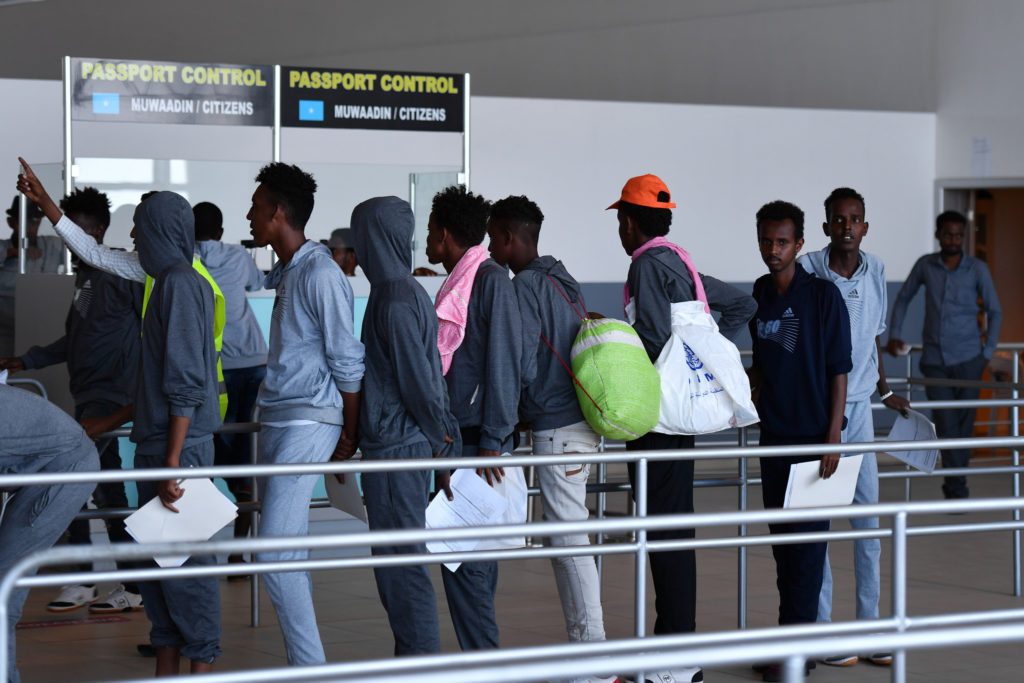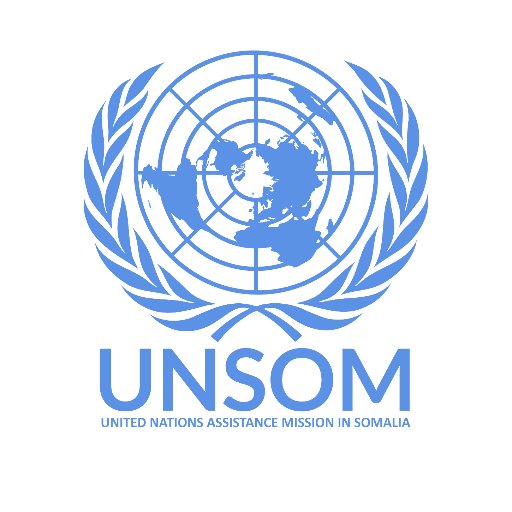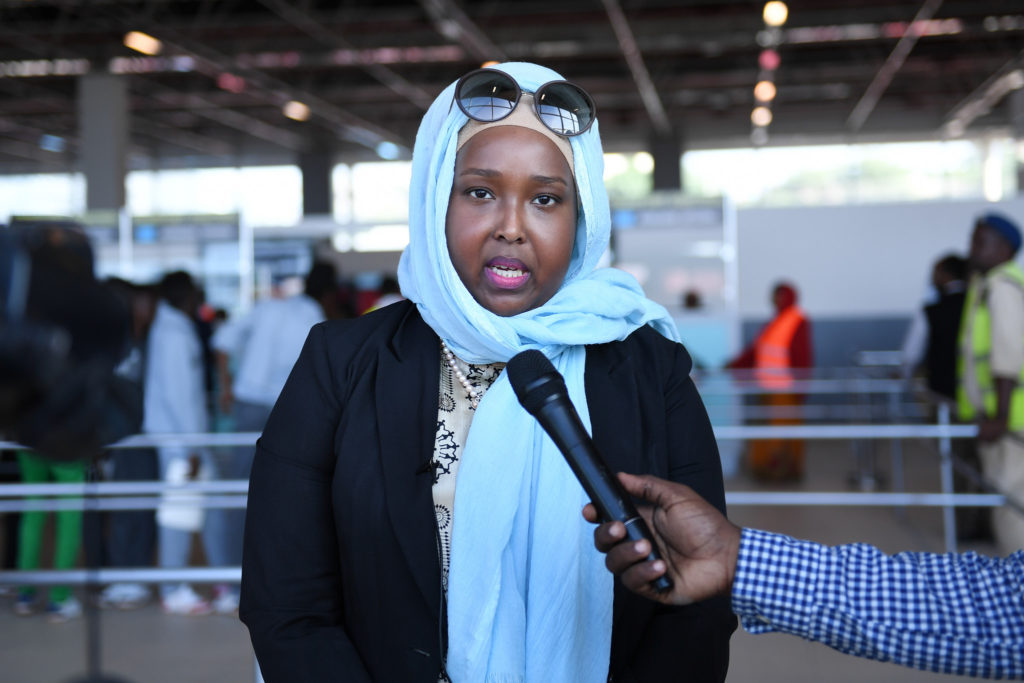“Finally, I have been freed” – 150 Somali migrants return home after detention in Libya


 By UNSOM Public Information
By UNSOM Public Information
Mogadishu, 30 May 2018 – Following several months of confinement in detention centres in Libya, 150 Somali migrants returned voluntarily to their home country today with transportation organized by the United Nations migration agency.
“I cannot find the right words to explain the anguish I went through in Libya. It was a difficult situation and I was held in detention for a long time,” said Mahad Abdullahi Hassan, soon after the transport plane landed at the airport in Somali’s capital of Mogadishu.
“Finally, I have been freed and I have returned to my home country,” he added after being received by staff from the Somali authorities, the UN’s International Organization for Migration (IOM) and the Office of the UN High Commissioner for Refugees (UNHCR).
The returnees had been rounded up by Libyan authorities as they attempted to cross the Mediterranean Sea to Europe, with most of them held in government-run detention centres in the north African country for months.
Today’s special chartered flight was provided by IOM, in collaboration with the Libyan and Somali governments and with funding from the European Union.
IOM has tracked more than 660,000 migrants in Libya, where they are exposed to numerous risks, including smuggling, trafficking, kidnapping, abuse, detention and torture. The true number of migrants there could be closer to one million people.
Working with the Federal Government of Somalia (FGS), IOM and UNHCR will oversee their resettlement and reintegration in the country.
“UNHCR are providing cash-based transfers immediately for the next six months, as well as other support, and IOM is looking towards more needs-based reintegration support over the long-term, including vocational training, health, business support, psychosocial – whatever they need, we are trying to help them towards a sustainable reintegration,” said Mark Lewis, an official with the IOM Somalia Support Office.
Harrowing experiences during their journeys
Those present to receive the returnees included Somalia’s Ambassador to the Benelux and the European Union, Dr. Ali Said Faqi.
He said the FGS had responded to the returnees’ pleas for help, after undergoing harrowing experiences, which included detention in Libya and treacherous journeys through Kenya, Uganda, South Sudan, Sudan, with many losing travelling companions to exhaustion and disease along the way.
“We are very happy that we could help these boys because these boys go through a very difficult time there in Libya. The smugglers request a lot of money, they get kidnapped, they get beaten. They are exposed to a lot of harassment and abuse – nothing to drink, nothing to eat,” Dr. Faqi said.
“So it is really a terrible situation,” he continued. “It is not only for the Somalis, but for all Africans who are there and I wish that this agony, this drama to end as soon as possible.”
Upon arrival, the returnees had their paperwork processed and were examined by doctors to ascertain their health condition.

Today’s returnees are the first batch of 300 Somalis in Libya who are making voluntary return home. Before being relocated to their homes, they will be given temporary shelter at a reception centre in Mogadishu.
Also, today’s return is the fourth and largest voluntary humanitarian return of migrants from Libya to Somalia; IOM carried out the first in February of this year. So far in 2018, IOM has helped 7,414 migrants return to their home countries from Libya, in addition to 19,371 IOM helped voluntary return last year. All migrants, who IOM helps return from Libya, are offered reintegration assistance, based on their vulnerability
According to IOM, Somalia continues to be characterized by migration flows, with internal displacement and irregular migration constituting major challenges – every year, the thousands of Somalis who make hazardous journeys along regional migration routes are exposed to severe protection risks.